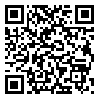Background & Aims: Due to lack of intervention studies in the introduction of new, integrated and trauma focused therapies for post-traumatic stress disorder in Iran, this research was conducted to study the efficacy of holographic reprocessing therapy on arousal and intrusion symptoms in veterans with post-traumatic stress disorder.
Materials & Methods: This single-case experimental study used A-B plan with different subjects that were conducted during 9 sessions on three patients with one month follow-up. The data were analyzed with visuals inspection, improvement percentage and reliable change index (RCI) strategies. Instruments used in this research included the Structured Clinical Interview for Axis I disorders and the impact of Event Scale-Revised (IES-R).
Results: The findings showed that the holographic reprocessing therapy reduced the severity of arousal and intrusion symptoms in veterans with post-traumatic stress disorder and follow-up period of therapy indicating the consistency of therapy.
Conclusion: This therapy with providing reprocessing facilitates a change in clients’ perceptions of a traumatic event, themselves, and others. It is through this perceptual shift they are able to gain new insight. This kind of therapy created significant changes in symptoms of all three patients and therapeutic achievements were maintained over follow-up.
SOURCE: URMIA MED J 2016: 27(5): 437 ISSN: 1027-3727
| Rights and permissions | |
 |
This work is licensed under a Creative Commons Attribution-NonCommercial 4.0 International License. |


